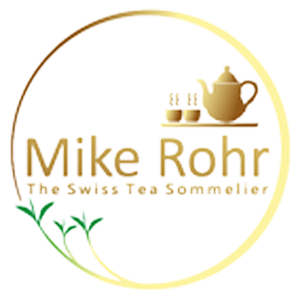“I’ve got to warn you”, the chemist said. She was staring intently at her till with a frown on her forehead.
“I know”, I was thinking, “most of these don’t even qualify as tea !” (See Tea Talk). Only tea from the plants Camellia Sinensis var. Sinensis and Camellia Sinensis var. Assamica (but none of the other Camellia Sinensis varieties with the exception of Camellia Sinensis var. Taliensis that hardly anyone even in professional circles talks about) qualifies as tea.
In Switzerland, anything that comes in a tea bag is also called tea (infusions, fruit teas, tree leaves and even bag that are 50 years past their expiry date) – but this is wrong, and we should be more careful to make a distinction between tea, infusions, and stuff you should avoid ingesting.
If you think about it, chemists have an immensely vast knowledge of what is good for you, which ointment will heal a nasty spot, what syrup will help against a persistent cough, but ask a Swiss chemist about tea … (Anything in a tea bag, from peppermint tea to valerian root tea, and tea tree oil, most interestingly, comes from the plant Melaleuca Alternifolia, and was given the name “tea tree” by Joseph Banks, who cooked the leaves in 1770 during an expedition with James Cook to Australia in order to create a substitute drink when there was no tea available. [https://de.wikipedia.org/wiki/Australischer_Teebaum. Isn’t this like eating pears when there are no apples and calling the pears apples henceforth ? Is this the origin of the idea that anything put into hot water can be called tea ?].
In Switzerland (and most other European countries), health regulations outlaw advertising for tea with its health benefits (https://www.theswissteasommelier.ch/chemistry-in-tea/) and so you don’t normally purchase your tea from your local chemist. However, if you find yourself at the chemist’s for other reasons, the staff certainly won’t mind selling you non-teas and teas on the side. So was this chemist possibly going to explain to me that even through all these lovely tiny tins of Sirocco Tea mention the word tea in bold letters, most of these tins did not contain any tea ?
“One of these ‘teas’”, she went on to elaborate, “contains estragole.”
“Yeees ?” Now, this was going to be interesting. She might as well have mentioned 1-Methoxy-4-(2-propenyl)-benzene, 1-Allyl-4-methoxybenzene, p-Allylanisole, Chavicyl methylether, Methylchavicol, Chavicol methylether, Isoanethole, 4-Allylanisole, all of which appear to be alternative names, and she would have drawn an equal blank.
“Swissmedic has issued a warning that [infusions] that contain estragole should neither be given to under-4-year-olds nor to pregnant women”, she said. Visibly, I was neither, but I was also reminded that I should not prepare such infusions for the aforementioned two groups nor pass on this cute set of infusions and teas. (https://www.swissmedic.ch/swissmedic/de/home/news/mitteilungen/fencheltee-fuer-schwangere-kinder-unter-4-jahren.html)
Now, this is news, and for the past 200 years or so, those drinking infusions appear to have exposed themselves to a terrible but unknown risk. Swissmedic reacted on 6th March 2024 (https://www.swissmedic.ch/swissmedic/en/home/news/mitteilungen/fencheltee-fuer-schwangere-kinder-unter-4-jahren.html#:~:text=The%20latest%20studies%20indicate%20that,is%20not%20possible%20in%20teas.) and the risk arises, they say, whenever fennel or fennel products are consumed. It is interesting to note that this kind of advice is only issued when you purchase an infusion from a chemist, but not when infusions are bought at a supermarket.
In 2004 (based on a 2001 study), the NIH wrote:
“For centuries, fennel fruits have been used as traditional herbal medicine in Europe and China. For the treatment of infants and sucklings suffering from dyspeptic disorders, fennel tea is the drug of first choice. Its administration as a carminativum is practiced in infant care in private homes and in maternity clinics as well where it is highly appreciated for its mild flavor and good tolerance. The long standing positive experience is astonishingly contrasted by a recent statement of the German ‘Bundesinstitut für gesundheitlichen Verbraucherschutz und Veterinärmedizin’ (BgVV, May 11, 2001), where consumers are advised to reduce their intake of foods containing estragole and methyleugenol, e.g. tarragon, basil, anis, star anis, jamaica pepper, nutmeg, lemon grass as well as bitter and sweet fennel fruits for reasons of health. These warnings are based on experiments with rats and mice where estragole, a natural ingredient of fennel fruits, proved to be carcinogenic. Meanwhile, criticism arose amongst experts concerning the interpretation of these studies. The crucial points of criticism concern the transfer of data obtained in animal models to the human situation as well as the high doses of the applied monosubstance, which do not at all represent the amounts humans are exposed to as consumers of estragole-containing foods and phytopharmaceuticals. Furthermore, studies on estragole metabolism revealed at least quantitative differences between the estragole metabolism of mice and men.”
Germany appears to have continued the necessary research and the warnings were reiterated in 2023 (https://www.mdr.de/nachrichten/deutschland/panorama/lebensmittelwarnung-fencheltee-babys-kleinkinder-100.html): “Seit Wochen sorgt eine Meldung der europäische Arzneimittelagentur EMA in den sozialen Netzwerken vor allem bei Eltern für Aufregung: Die Behörde warnt vor Fencheltee. Diese Sorte enthalte den Stoff Estragol und der sei für Babys und Kinder unter vier Jahren nicht geeignet. In Tierversuchen wurden mögliche Krebsrisiken und schädigende Einflüsse auf das Erbmaterial festgestellt. Wie gefährlich ist Fencheltee für Kinder wirklich und was sollten Eltern tun?”
As of 2024, Switzerland has picked up the thread, but Swissmedic, the supervisory authority for medical products in Switzerland, is quick to point out that infusions and teas do not fall into their area of responsibility. Thus, unless the fennel infusion lovers (among whom there are truly many parents) ditch their buying habits and switch to purchasing from their local pharmacy, they will not find out – and those who have read this article, will hopefully have realised that fennel tea is not a tea, as well as that there is a difference between tea and infusion ;-)








